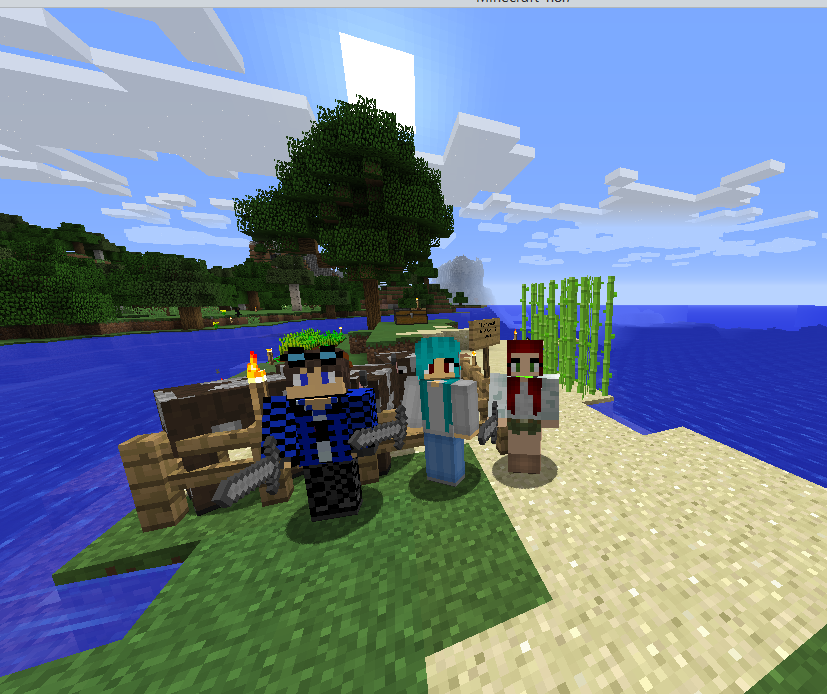Video games and meaningful meaninglessness

I consider to be a blessing the psychological zoom-out that my health situation has afforded me. I do have a new perspective on things.
I was still struggling with a mindset of trying to "achieve" things when I wrote the post about chemo and mental health, and I've come quite a long way in the six weeks since then. Enough so, that when a friend talked about the frustration of "time spent with no clear return" when playing video games during her own health treatment, I both recognised the instinct to think that way, but also mentally underlined the word "return" with a big red question mark.
What is a valid return and what is not? What is meaningful and what is not? It's now been eight months since I left a full time workplace, and the mental liberation which that voluntary redundancy gave me has contributed to my existential focus at the moment. What actually matters? Why am I actually on this earth? What do I want to do with the time I have left here, however much or little of it there might be?
Anyway, to not get too far off the point, I strongly believe that playing silly video games during cancer treatment is in no way pointless. So I'll have a go at rationalising this over 2300 words about logic tools; cultural analysis; and psychology!
First off, I think that we can use one of the work tools I learned about in my former role to help clarify the rationalisation behind the 'valid' 'return' (even if I still want to interrogate both those words). Namely, we could approach it with the 'five whys' tool for uncovering the root of problems. However, because this isn't specifically a problem, more an attempt to uncover a rationalisation or challenge an assumption, I think it works better if you ask "Why does this matter?" instead of plain Why.
- Why am I still playing this video game when I feel guilty about using my time this way? → Because it is an effective distraction that lets me switch off my brain.
- Why does switching off my brain matter? → Because I'm in danger of being overwhelmed by rumination and dark thoughts.
- Why does getting out of dark thoughts matter? → Because being stuck in dark thoughts makes it harder to function day to day, and cope with things such as my physical health situation.
- Why does daily functioning and coping matter? → Because coping is essential to help me get through treatment. Mental health is strongly connected to physical health.
- Why does that matter? → Optimising how well I get through treatment is putting myself in the best possible situation to survive this, so I get to do the other things I want to do while I am on this earth.
So far, so good. It's totally 'valid' and makes logical sense to distract ourselves, even by something we may think is light or unserious.
So let's go on to challenge that last bit. Are video games a 'valid' way to spend time in and of themselves?
It's been a relatively recent phenomenon in the UK that video games have been taken seriously as a cultural art form. A bit of casual reading around the topic brought up an interesting academic exploration, via Pierre Bourdieu's concept of cultural intermediaries (the influential people and organisations that shape society's notion of taste). The article explains how video games are not yet taken seriously enough, but there's no doubt their legitimacy has come on in leaps and bounds in the last two decades. For instance, I found that the British Academy Games Awards were launched in 2004, which seems to represent a notable rubber stamp by the British cultural establishment that "outstanding creative achievement" can be legitimately recognised in that medium. This rather good Wikipedia article is an interesting read.
Some games have gained the reputation of being 'high culture', such as Disco Elysium or Journey. Personally I've always thought that even the 'low culture' games are a valid participatory form of art, culture and narrative. To just pluck at random 'low culture' games I've played recently, I really appreciated the story told via diary entries of the husband and wife in the puzzle/escape room game The Room 4: Old Sins, which is (to me anyway) genuinely moving and coherent as a story and cultural artefact. I found that the dark, morbid and heartbreaking family tree in Rusty Lake: Roots stayed with me for weeks just as if I'd read a particularly good novel. (If you want to play either of those puzzle games, I recommend starting at the beginning of the series in both cases!)
In a different genre, I've been enjoying playing Civilization VI for years. This is partly because I usually play it with my son, and the laughter and social element is priceless (particularly recently, for me) as we compare strategies and try to help each other in trade, warfare or dealing with restless populations. It doesn't tell an emotional story like the other games I mentioned, but it's an opportunity to exist in an engrossing strategic environment that, despite its flaws, does teach a lot about other nations and cultures. For instance, my son has learned a lot about international music by listening to the soundtrack, which a tremendous amount of work went into. It beautifully incorporates traditional folk tunes and anthems across the different epochs of the global civilisations featured in the game.
Because I'm interested in it, I'll briefly take a detour into the music side of the genre by way of illustration of how culture shifts, via the influence of 'cultural intermediaries'. One of the composers of the Civilization music I mentioned, Christopher Tin, was the first video game composer to win a Grammy in 2010. In 2012, Classic FM, the UK commercial classical radio station with a reputation for being more popular and lowbrow than its BBC equivalent, Radio 3, moved to legitimise video game music by controversially incorporating it into its annual Hall of Fame. The year after, following a campaign, the soundtrack to Final Fantasy 'beat Beethoven' in the ranking, as the headlines read. In 2017 Classic FM deliberately introduced video game music into its regular programming via the show High Score, and BBC Radio 3 followed suit in 2019 (more here, though it looks like this show may not exist any more). Then in 2022 we had the first ever BBC Prom dedicated entirely to video game music.
Dissenting 'cultural intermediaries' make the cultural value of video games into an ongoing debate. For instance, the famous film critic Roger Ebert said "Video games by their nature require player choices, which is the opposite of the strategy of serious film and literature, which requires authorial control... for most gamers, video games represent a loss of those precious hours we have available to make ourselves more cultured, civilized and empathetic". Ouch! Straight to the existential! And earlier I was musing: What actually matters? Why am I actually on this earth? What do I want to do with the time I have left here, however much or little of it there might be?
Many of my answers to those things include interacting with human culture, observing how we think as a species, appreciating the artefacts that we have made to express ourselves and reach each other. I used to be (still am?) an academic in the humanities, and as I mentioned, I've always been unimpressed by gatekeeping of cultural value and meaning between 'high' and 'low' art. Like any good poststructural reader-response critical theorist... (I was trained as an art historian at the progressive and interdisciplinary Centre CATH at Leeds to undermine traditional constructions of the cultural canon)... I feel I am participatory even when I'm looking at a painting. Viewers construct narratives for ourselves in any act of consuming culture. So a video game (an explicitly participatory human artefact) feels to me just as 'valid' in an academic sense, as reading some sort of officially worthy work of literature or film which Ebert would seek to validate via authorial "control".

However, I’m aware that so far I’ve accidentally validated my own snobbery by explaining how Rusty Lake: Roots has emotionally profound narrative like a novel, and Civilization VI’s music teaches us about global cultures. I’ve instinctively explained how the lowbrow is actually as worthwhile as the highbrow to legitimise it, and maybe undermined my point.
I didn’t mean to do so. For instance, The Sims presents us neither with an emotionally mature narrative nor a profound engagement with global human cultures. Instead it presents us with nothing but a tool that invites a wild exploration of whatever can be imagined, from the mundane to the ridiculous. It’s a creative engine that encourages consequence-free behaviour across and beyond the whole gamut of what we do as a species, from work to sex to crime to murder.
Some people carefully build homes, skills and relationships in The Sims, and create multiple generations of varieties of characters to test out infinite paths not travelled. Some live out morbidly funny cruel experiments or safely test out risky or wild behaviour. Unlike all the games that qualify as art because they’ve built a world and story for us to interactively consume, The Sims is an archetypal example of a game that doesn’t present you with an interactive story or set out to teach you anything, but instead gives you complete nihilistic omnipotence to create and destroy at a whim. So I think it’s a unique artefact of what humans do and are. Its value lies in the fact that it's one of the only ways we can play with the structure of human life and then transgress that structure safely.
Minecraft is somewhat similar, and from my and my children's experience over many years, I think it's particularly rich in how it provides a blank canvas for collaborative projects. I think working on Minecraft tasks together taught us a lot about each other as people, and how our strengths and personalities work most optimally, together and individually.
(Anecdotally, my daughter learnt a great life lesson from the Sims. When she was about 10 or 11, she made very accurate versions of our actual family, then made me and my husband (her step-dad) get married. Then, she got busy with other characters and projects and forgot to encourage us to interact with each other, talk to each other and be affectionate… She thought once we were married the relationship would just be fine without extra work. …Of course, the Sims versions of us started arguing and the marriage fell apart. It is funny with hindsight of course, but she was so upset at the time, that she learnt the lesson that relationships take work very thoroughly indeed! So maybe this sort of social role play is another genuinely useful aspect to the game.)
There's a final aspect of video games that I think is vitally important beyond the functional self care and cultural legitimacy aspects. Video games, and The Sims is a great example of it, tend to have a particular quality that easily induces a flow state, turning off rumination and enabling us to be peacefully and pleasantly absorbed. It’s of course valuable when we’re producing something objectively useful or beautiful, but it’s also valuable for its own sake, to nourish a sense of happiness and fulfilment. I think it is an experience of absorption and contentment that represents a little taste of the ‘self actualisation’ that lies at the top of Maslow’s hierarchy of needs. Even the silliest of silly games can give us that to some extent, or for brief periods - even if we’re just clicking on sweets or ‘merging’ stuff on our phones, and I think we deserve to gift ourselves that.
When the rumination topic is particularly close to the surface and difficult to avoid, like something health related, the flow state can be elusive. Then getting through the days can be hard work. Something interactive and task-based can raise us away from that type of rumination and into a flow particularly easily, likely because it involves a form of ‘work’. Mihály Csíkszentmihályi, who coined the term 'flow state', wrote that it is connected to immersion and mastery, and “usually occur[s] when a person’s body or mind is stretched to its limits in a voluntary effort to accomplish something difficult and worthwhile.”
Csíkszentmihályi did say ‘worthwhile’, which gets us right back to the topic at hand. For instance, I’m not going to go into the debate about the value or harm of violent or sexist games - it’s highly complex and huge. I feel like people are going to learn to draw their own lines around what is healthy and useful for them (and parents can help teenagers navigate identifying healthy and useful behaviour for themselves, via conversations and/or boundaries). Also, there are negative aspects to any extreme. The flow state itself can become problematic if seeking it (via whatever means) becomes an addiction that gets in the way of things further down Maslow's hierarchy, like eating, sleeping, and connecting with loved ones. And we might merge things on our phones so much or play so many hours of Civ that we’re overlooking richer and happier alternate sources of leisure time flow. Like painting, Star Trek, chess, cooking, birdwatching or Agatha Christie novels…! There are endless joyful sources of flow to discover.
I'm coming to recognise the flow state as one of the most precious gifts we can give to our brains. By diving into a game, we can nourish our brains and protect ourselves from damaging darkness, and also often we’re investigating artefacts of human culture that help us explore who we are. I think we can welcome that ‘return’ on our time spent, joyfully and gratefully.





Member discussion